Headlines
We don’t know the accrued amount from POF, the Consultant is not transparent with us— CRFFN cries out

The POF are collectable on all cargoes entering into and exiting the country through land, air and sea.
In the scale of payable fees, one kilogramme of airfreight cargo will attract a fee of N2.00.
However, for sea freight cargo, a 20ft container will attract N1,000, 40ft will attract N2,000. Similarly, car and SUVs will pay N500, while 20ft trucks and 40ft truck will attract a fee of N1,000 and N2,000 respectively.
Similarly, general cargo will attract a fee of N3.50 per ton, while dry bulk cargo will attract a fee of N1.00 per ton, even as it was stated that fees in respect of wet cargoes are negotiable.
In the 2015 gazette, there was provision for sharing by all the parties, including the CRFFN, the five registered freight forwarders and registered freight forwarding companies.
The CRFFN is to collect 60 per cent of the revenue, the five registered associations will share 35 per cent, while the registered companies that handled the cargo will share the remaining 5 per cent, calculated by the volume or cargo they account for.
The gazette specifically states that “CRFFN collects 60% Internally Generated Revenue (IGR), the Associations will collect 35% as provided by the CRFFN Act (Accreditation of Associations of Freight Forwarders) Regulation,2010. The Registered Freight Forwarder/Licensed Customs Agent (RFF/LCA) is entitled to 5% of the Practitioners’ Operating Fee which will be collected by the CRFFN and remitted to the concerned RFF/LCA”
Headlines
Tinubu swears in new IGP, Tunde Disu on Wednesday as Police council endorses his appointment

Headlines
Maersk’s suspension of shipping operations through Strait of Hormuz raises anxiety among Nigerian importers

“We are suspending all vessel crossings in the Strait of Hormuz until further notice,” the Danish group said in an online advisory.“The safety of our crews, vessels and customers’ cargo remains our key priority,” it said.
Iran’s Revolutionary Guard had earlier announced the Strait’s closure.
Headlines
NRC hosts Rotary Club on mobile train
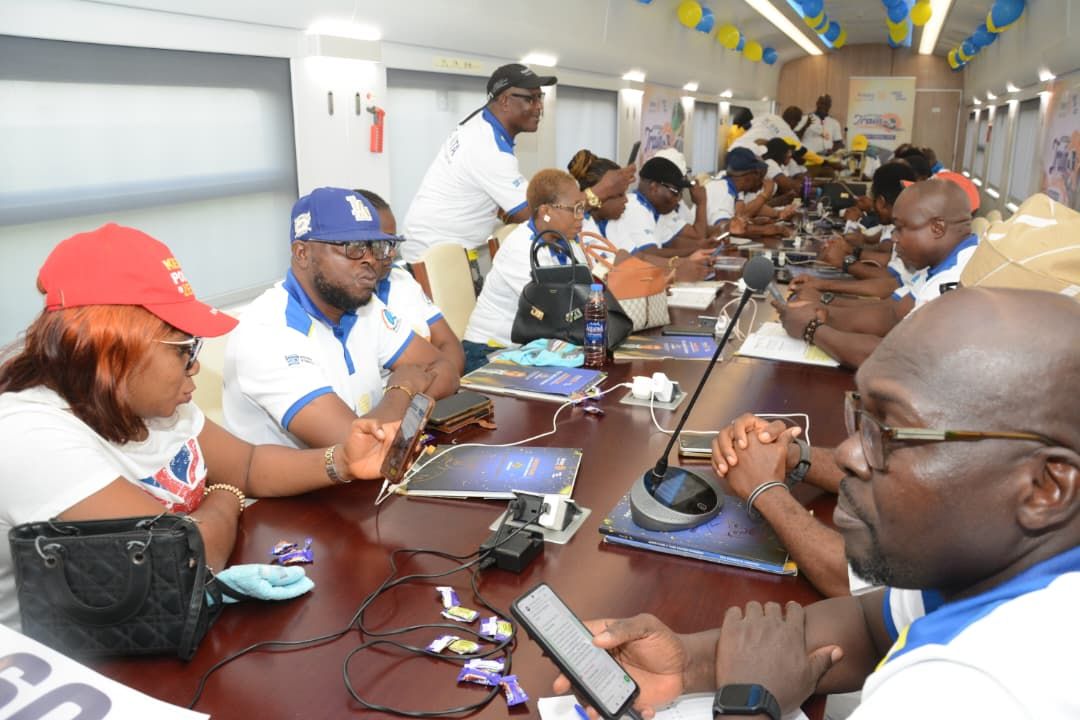
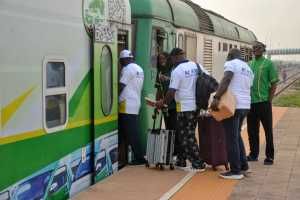
-

 Headlines2 weeks ago
Headlines2 weeks agoFIFA sends Nigeria’s Super Eagles to 2026 World Cup, awards boardroom scoreline of 3 goals to nil against DR Congo
-
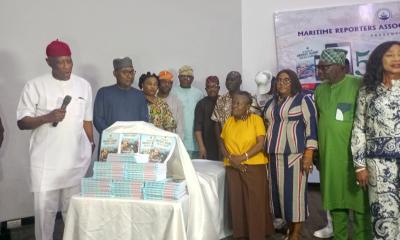
 Headlines3 months ago
Headlines3 months agoMARAN pulls industry’s stakeholders to unveil its iconic book on Maritime industry.
-

 Headlines1 month ago
Headlines1 month agoAyobo residents protest deplorable road at LCDA, complain of 10- year neglect by successive local council administrations.
-
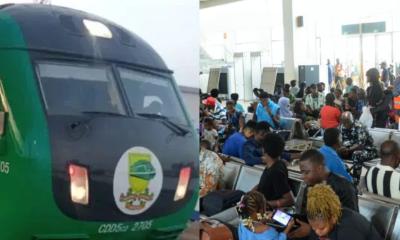
 Headlines2 months ago
Headlines2 months agoFG approves 50 percent price slash on Yuletide train services
-

 Customs3 months ago
Customs3 months agoRelief as Customs grants January 31st, 2026 extension for fast track operators to migrate to AEO
-
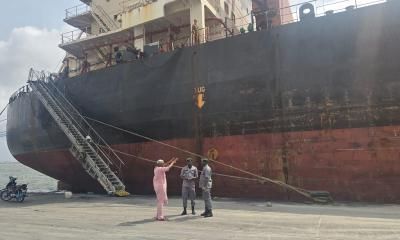
 Customs2 months ago
Customs2 months agoApapa Customs stretches illicit drug seizures streak with another new year interdiction of 30.1 kg of cocaine on board vessel.

